Why It's Important to Talk About Death
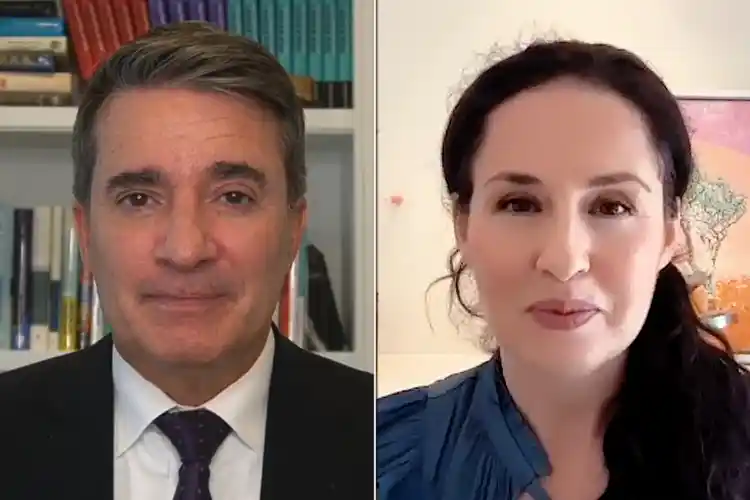
Hide Video Transcript
Video Transcript
[MUSIC PLAYING]
JOHN WHYTE: It's a hard conversation and it's one that I talked about to colleagues that we don't have enough. And that's why I was so interested in talking to you about it because you really have a new framework of how we need to think about end of life issues. And you talk about it needs to be part of a wellness journey, and I wouldn't even thought about it that way. So tell us what you mean by that.
And I, looking back now, realize how distressed I was that we weren't having conversations about goals of care about what the end of life might look like. There was a mismatch of expectations between what patients and families were sort of thinking was going on and what was actually happening in the context of what turned out to be the end of their lives. And I found that far too often people get care in their final days, weeks, moments of life that they don't understand, they don't want, and that doesn't really honor the life that they've lived or their goals and their values.
And so it got me thinking about this broader conversation, both within medicine and in society, about the fact that we have a hard time thinking about and talking about and certainly planning around end of life. And there's tons of reasons for this. We don't even have time to go into all of them. But what struck me is that the end of life is not just a medical issue to be solved. It's part of the human experience. It's what actually defines life, is that one day it ends.
And in thinking about this personally and reflecting more deeply, and in starting End Well, I realized that if we can open the door or have a relationship with our own mortality. It can actually allow us to live better every single day.
And so the more that we can connect with the fact that living and dying are not actually separate things-- if you think about it, we're doing both at the very same time-- how can, again, that allow us to live a better life every day recognizing that time for all of us is short. We never know what tomorrow will bring. Asking ourselves some of these bigger questions of like, am I living the life that I want to be living?
But people throughout their lives as children, as young people were sort of experiencing death within community. There was ritual. There was context. It was planned for. People knew what to do with the body when someone had died. And that just doesn't exist anymore because of medical technology and frankly hospitals and other institutions emerging in the middle of the 20th century, which I am a big fan of, obviously.
But if you think about it in a cultural context, we sort of lost our cultural understanding of how to just talk about this stuff. We literally lost the vocabulary about how to connect with this certainty of life within medicine and then outside of it. And I think just to touch on the medical piece, I think that in Western medicine, we see death as the ultimate failure.
Western modern medicine is really poised to treat, to cure. We're certainly incentivized to do those things, and in a lot of ways, rightfully so. But when cure is no longer possible, I think physicians don't understand necessarily that they can have a role in healing in a journey with patients even if it's not possible to cure their underlying disease. And so a lot of what End Well talks about is really reframing that and inviting all of us, whether we're inside of health or outside, to come up with solutions to make these conversations, these experiences a little less hard for people.
And I guess I just want to say that I'm not trying to tell people that this should be minimized or not thought of as a really important discussion. It really is, and it can be hard. But I guess that's OK. I think that leaning into whatever you find to be challenging about it is actually a good thing. And it's OK if it brings up emotion and isn't just a breeze to talk about. I think that that can actually give you helpful information about how you're doing, what this all means to you in the context of your life. So I think it's first a personal reflection on some of that before you can be talking about it with others.
And I would certainly encourage people to check out our endwellproject.org website. I think a lot of what we've done is curate content that helps people kind of dig into this stuff wherever they are in their journey and we make it really accessible and driven by narrative while also being rooted in data.
[MUSIC PLAYING]
JOHN WHYTE
Welcome, everyone. I'm Dr. John Whyte. I'm the Chief Medical Officer at WebMD. It's hard to talk about death, isn't it? It's uncomfortable. There's a lot of uncertainty. No one really wants to think about it. But my guest today has a new framework about end of life. Dr. Shoshana Ungerleider is a practicing physician, a board certified internist, and the founder of End Well. Dr. Ungerleider, thanks for joining me today. SHOSHANA UNGERLEIDER
Thank you so much for having me, John. This is a conversation that is challenging on many fronts, but I'm really honored to get to have it with you now. JOHN WHYTE: It's a hard conversation and it's one that I talked about to colleagues that we don't have enough. And that's why I was so interested in talking to you about it because you really have a new framework of how we need to think about end of life issues. And you talk about it needs to be part of a wellness journey, and I wouldn't even thought about it that way. So tell us what you mean by that.
SHOSHANA UNGERLEIDER
Well, I think it's helpful when talking about this in a broader context to just say that early on in my training, I was struck by how many patients I was caring for often in the intensive care unit who were quite frail, often of older age, dealing with a myriad of medical issues. And what was landing them in the intensive care unit was their end stage organ disease or widely metastatic cancer. And I, looking back now, realize how distressed I was that we weren't having conversations about goals of care about what the end of life might look like. There was a mismatch of expectations between what patients and families were sort of thinking was going on and what was actually happening in the context of what turned out to be the end of their lives. And I found that far too often people get care in their final days, weeks, moments of life that they don't understand, they don't want, and that doesn't really honor the life that they've lived or their goals and their values.
And so it got me thinking about this broader conversation, both within medicine and in society, about the fact that we have a hard time thinking about and talking about and certainly planning around end of life. And there's tons of reasons for this. We don't even have time to go into all of them. But what struck me is that the end of life is not just a medical issue to be solved. It's part of the human experience. It's what actually defines life, is that one day it ends.
And in thinking about this personally and reflecting more deeply, and in starting End Well, I realized that if we can open the door or have a relationship with our own mortality. It can actually allow us to live better every single day.
JOHN WHYTE
And that's really your framework, but when should we start thinking about it? Because Shoshana, I'm sure a lot of people have said to you, we're not supposed to talk about death. There's almost a superstition for some, isn't there? If talk about it, then something bad might happen. Or if I mention it to an elderly parent or an elderly grandparent, they're going to assume I think they're going to die soon, and I don't want to make them worried. So when should we be having this conversation almost with ourselves about end of life? SHOSHANA UNGERLEIDER
Well, I certainly hear you. For some people, there are some cultural superstitions around talking about death and dying. I've certainly experienced that as a physician caring for patients. I get that some people are not really wired to be thinking about a future when they no longer exist. It's kind of hard to do. JOHN WHYTE
It's depressing, isn't it? People are going to say that if think about death, that's going to make me sad. SHOSHANA UNGERLEIDER
Yeah. Well, I think that in terms of the timing, I think it's never too early frankly to talk about the end of life, whether it's in the context of the first time in your family if you have young children, for example, you lose a pet. That's often when children first experience a loss in the family. I think it's OK to normalize these conversations. Because in reality, yes, it can be hard. It very often is sad, but it is truly a part of life. And so the more that we can connect with the fact that living and dying are not actually separate things-- if you think about it, we're doing both at the very same time-- how can, again, that allow us to live a better life every day recognizing that time for all of us is short. We never know what tomorrow will bring. Asking ourselves some of these bigger questions of like, am I living the life that I want to be living?
JOHN WHYTE
Tell us what some of those questions are that you should be asking yourself? SHOSHANA UNGERLEIDER
Well, I would say in the context of somebody who is well and young and healthy, I often find that the idea of death kind of keeps me awake to my own life. I found that, especially during the pandemic when things were a little scary and our mortality was quite proximate, asking myself the question of like, if time is short for me, which, gosh, I hope it's not, but how do I want to be spending my time? What brings my life joy and meaning? And what's missing right now to complete what I'm hoping to do and leave in the world when I'm no longer here? And hopefully that's in 60 years from now, but-- JOHN WHYTE
It might not be, and that's your point, thinking about death can make you think about your values more and maybe make you live better in a way and you talk about that. But you also talk about, which I found very interesting and I was wondering about the word. You talk about that there's stigma associated with death or talking about death. So why is it stigma? SHOSHANA UNGERLEIDER
Well, I mean, I think it's stigma in the same way that sometimes talking about politics and sex there's stigma around discussing it. I think that in modern society, we're so far removed from death and dying. Most people who are dying are often doing it in hospitals and other institutions, not in the home. So if you look back, say, 100 years ago, it was very common for people to experience death and dying many times throughout their lives, granted they were much younger because we didn't have the amazing technology we have now. But people throughout their lives as children, as young people were sort of experiencing death within community. There was ritual. There was context. It was planned for. People knew what to do with the body when someone had died. And that just doesn't exist anymore because of medical technology and frankly hospitals and other institutions emerging in the middle of the 20th century, which I am a big fan of, obviously.
But if you think about it in a cultural context, we sort of lost our cultural understanding of how to just talk about this stuff. We literally lost the vocabulary about how to connect with this certainty of life within medicine and then outside of it. And I think just to touch on the medical piece, I think that in Western medicine, we see death as the ultimate failure.
Western modern medicine is really poised to treat, to cure. We're certainly incentivized to do those things, and in a lot of ways, rightfully so. But when cure is no longer possible, I think physicians don't understand necessarily that they can have a role in healing in a journey with patients even if it's not possible to cure their underlying disease. And so a lot of what End Well talks about is really reframing that and inviting all of us, whether we're inside of health or outside, to come up with solutions to make these conversations, these experiences a little less hard for people.
JOHN WHYTE
And you do a lot of presentations. You're a very popular TED speaker. You have your site and your work. What's one or two tips that you could tell viewers today or those tools that you talk about to have those conversations? What do they need to be thinking about right now? SHOSHANA UNGERLEIDER
Well, I guess I would say that no matter where you are on your journey of life, it's just having that kind of reflection. I think it starts internally with yourself. I think it's really hard whether you're a clinician, whether you're a patient, whether you're somebody else. It's challenging to start talking about this with other people if you haven't engaged with it yourself. JOHN WHYTE
It's hard to broach the topic of death. SHOSHANA UNGERLEIDER
It is. No, it certainly is. There's some wonderful tools out there. My colleagues have developed a document around advanced care planning, which is obviously a clinical tool, but it is really, really helpful. It's called the Five Wishes. I think they do an excellent job of framing a conversation that you can have with the people that you love. And I guess I just want to say that I'm not trying to tell people that this should be minimized or not thought of as a really important discussion. It really is, and it can be hard. But I guess that's OK. I think that leaning into whatever you find to be challenging about it is actually a good thing. And it's OK if it brings up emotion and isn't just a breeze to talk about. I think that that can actually give you helpful information about how you're doing, what this all means to you in the context of your life. So I think it's first a personal reflection on some of that before you can be talking about it with others.
And I would certainly encourage people to check out our endwellproject.org website. I think a lot of what we've done is curate content that helps people kind of dig into this stuff wherever they are in their journey and we make it really accessible and driven by narrative while also being rooted in data.
JOHN WHYTE
And that's going to address the uneasiness, the uncertainty, the uncomfortable aspect I referenced at the beginning that you're trying to change. Shoshana Ungerleider, thank you so much for taking the time today. SHOSHANA UNGERLEIDER
Thank you so much for having me. [MUSIC PLAYING]
latest videos on Healthy Seniors
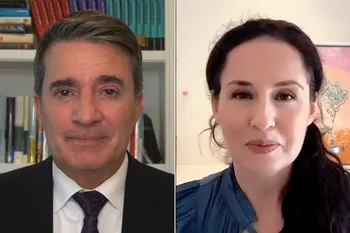
Why It's Important to Talk About Death
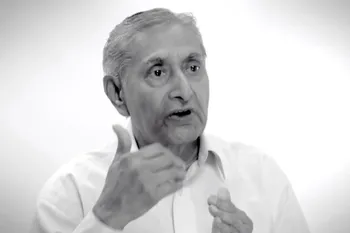
Vídeo sobre el trato que reciben los adultos mayores en el sistema de salud
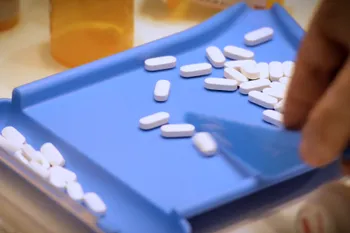
The Burden of Managing More Medications for Older Adults
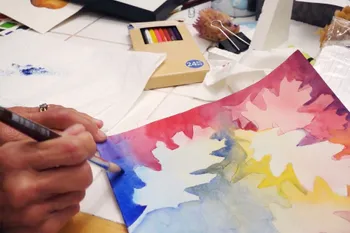
Dementia vs. Normal Memory Loss
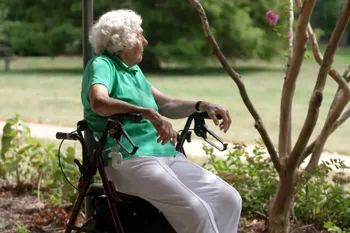
Helping Older Adults With Mobility
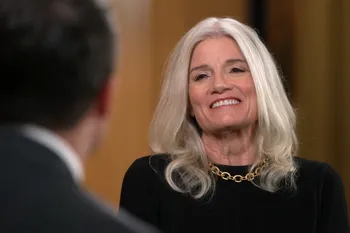
Focusing on What Matters to the Patient
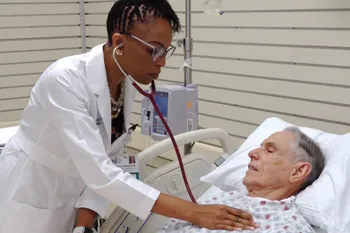
Accurately Diagnosing Older Adults
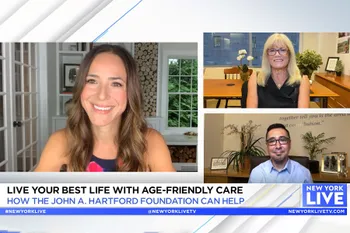
The 4Ms: How to Improve Care for Older Adults

Strengthening Your Immune System With Exercise
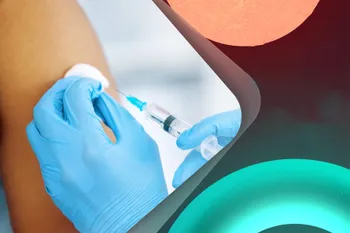
Vaccinations for Those Over 50
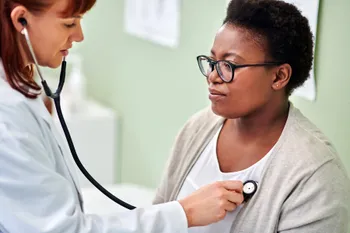
Myths and Facts on Respiratory Illness

How Sleep Improves Your Immunity